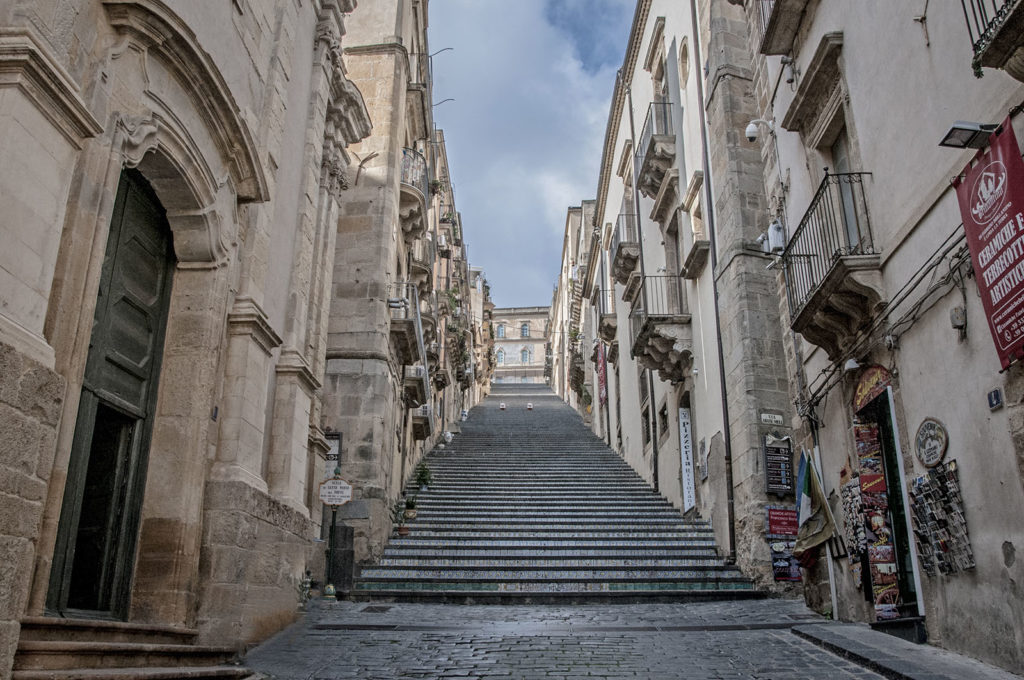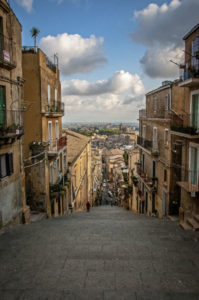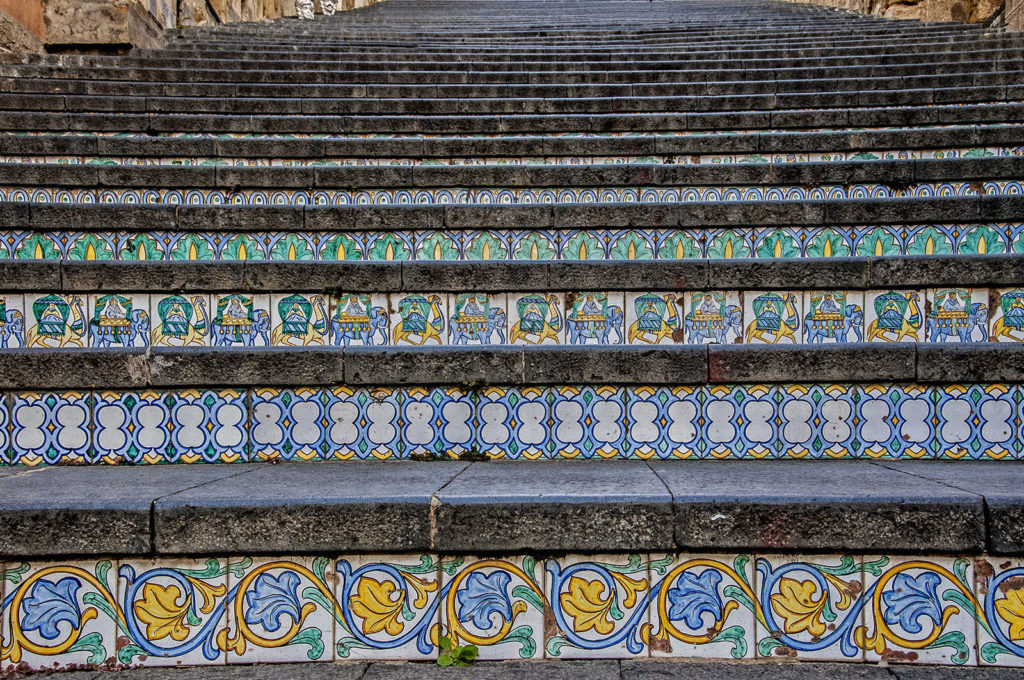The Scalinata di Santa Maria del Monte (Staircase of St. Mary of the Mountain), is not simply a stairway, but one of the symbols of the town of Caltagirone.

The Staircase of St. Mary of the Mountain, also known as the Staircase of St. James, passes between two tightly packed housing terraces. It is 130 metres long, formed of 142 steps and connects the lower town to the mother church.  The staircase was built in 1606 to create a direct connection between the church of St. Mary of the Mountain and the lower town where the Senatorial Palace, the captain’s court and the church of San Giuliano (St. Julian) were located.
The staircase was built in 1606 to create a direct connection between the church of St. Mary of the Mountain and the lower town where the Senatorial Palace, the captain’s court and the church of San Giuliano (St. Julian) were located.
At first a road was considered, but because of the steep slope a staircase was built instead. The works were managed by the master of Palermo
Giuseppe Giacalone
, who employed local workers.
In the 19th century interventions were carried out to make the staircase more accessible.
The various ramps that made up the staircase were joined together by the architect Salvatore Marino. In 1956, colourful
maiolica tiles
were added to decorate the 142 steps.
 Every year at certain times of the year, the staircase features prominently in town life.
Every year at certain times of the year, the staircase features prominently in town life.
In May you can admire the Infiorata (flower festival) in celebration of the Madonna dei Conadomini, when a design with thousands of flowers is created. Between the 24th and 25th of July the staircase is illuminated with “”
coppi
” (tea lights) for the Feast of San Giacomo (St. James), the
patron saint
of the town. It is also lit up between the 14th and 15th of August in honour of the Madonna del Ponte.